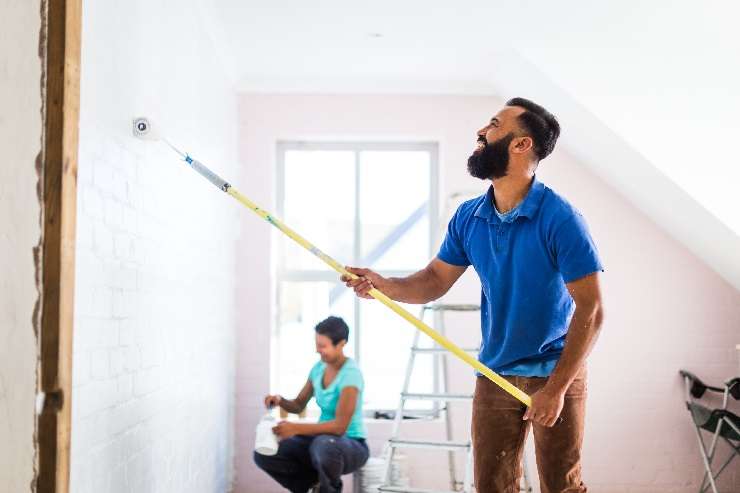Rising mortgage payments and rampant inflation caught homeowners by surprise in 2023, but there are ways to survive until inflation is tamed, and interest rates fall.
Below are six ways homeowners can set themselves up for a financially successful future.
1. Perform a financial wellness check
Homeowners who are struggling with rising mortgage repayments should review their finances, Katrina Studholme, financial adviser at Total Wealth, told OneRoof. “The reason why you should have a financial wellness check is to ensure that you are covering your increased living costs.” That check considers a person’s current income, debt, their budget, risk management/insurance, retirement savings and estate planning, she said.
Start your property search
Another way of looking at it, is a wellness check tests a person’s financial resilience to cope if life throws a curve ball. It’s a good idea for homeowners to have, and review, a long-term financial plan, she said. An adviser can help with financial wellness checks and plans, or people can use the tools on Sorted.org.nz.
2. Get ready to refinance
As mortgages continue to roll onto higher rates, homeowners can do themselves a favour by preparing for a refinance, said EasyStreet mortgage adviser Gareth Veale. Someone with a $500,000 mortgage could easily be $5000 better off after a year by a combination of a cash contribution from the new bank and refinancing onto a lower rate. “Start the conversation with your mortgage broker or bank early,” said Veale.
He also advised mortgage-holders to clean up account conduct to become more appealing to lenders. “Banks want to see that potential clients are spending appropriately and don’t have unarranged overdrafts, or missed utilities bills,” he said. Obtaining copies of credit reports from Experian and Centrix to check for defaults that need clearing up was also a must.
Read more:
- High stakes real estate gamble: Queenstown land grab could send prices sky-high
- The multi-billion-dollar coastal development that's freaking out the neighbours
- NZ's greenest regions revealed: Why sellers are getting serious about eco-credentials
Banks count all credit limits against how much a borrower can afford to pay on a mortgage. That includes credit cards, overdrafts, car and other consumer loans, buy now pay later accounts and utilities bills. Clean bank statements give borrowers more options.
“Make sure you start the refinance process about 80 days out from your loan coming up for refix,” he said. “It can take a couple of weeks to get it all approved, and by that time, you’re within a period where you can lock in rates.”
3. First-home buyers should boost KiwiSaver
The hardest part of buying a first home in New Zealand is coming up with a healthy deposit, said National Capital director Clive Fernandes. “Being able to access your KiwiSaver, and use this towards your first home, is an incredible opportunity and provides a leg up for many Kiwis to get them on the property ladder,” he said.
“It’s never too late, or early, to be active in the management of your KiwiSaver account. The sooner you ensure you’re in the right fund and with the right provider, for your situation and goals the better your outcome will be. Start by understanding the basics about KiwiSaver and the first home withdrawal criteria. Increase your KiwiSaver contributions, if you’re in a position to. If a first home truly is your priority, prioritise your KiwiSaver investments and be mindful of your spending habits.”

EasyStreet mortgage adviser Gareth Veale: "Banks want to see that potential clients are spending appropriately and don’t have unarranged overdrafts." Photo / Supplied
Also ask your employer, ask for an increased contribution to your KiwiSaver, or negotiate a higher contribution in your next job.
4. Keep on top of home maintenance
A well maintained house is easier to sell and will get the best price, said Bayleys agent Linda Simmons. By keeping on top of maintenance, homeowners can be ready to sell at short notice, should the house of their dreams come up or circumstances change. It’s not at all uncommon for homeowners to approach Simmons because they’ve suddenly decided to sell. If their home isn’t ready to sell, thanks to deferred maintenance they may not get top dollar.
“The best thing you can do is present your home in its very best light. I'm not saying the home needs to be brand spanking new. But you want the buyer to think: ‘I don’t need to do anything’. Then they only need to get their head around how much they’re going to spend on the day.”

A house that doesn't need major upgrades or repair work is an easier sell. Photo / Getty Images
Maintenance doesn’t mean a full renovation or new kitchen. The buyer might have longer term plans to do that themselves. It’s more about removing immediate problems for the buyer. “It’s annoying, hidden costs that people don’t like. It’s the roof, or windows that need to be repainted. If you can keep on top of the maintenance of your home, then buyers won’t devalue the property in their mind.” Pay the same attention to the garden, added Simmons. She likened good maintenance to having regular haircuts. “You can let your hair go for 10 weeks. But why don’t you cut it every six weeks and keep it looking healthy.”
5. Diversify your investments?
If 2023 showed anything, it’s that life can turn to custard. Homes can be flooded, and interest rates and living costs can go through the roof. “Diversification gives you flexibility by not having all your eggs in one basket,” said financial adviser Tim Fairbrother of Rival Wealth. For a homeowner it might mean assigning some money to an emergency fund, keeping minimum KiwiSaver contributions up to date, paying down the mortgage so that the money going into repayments can be assigned in the future to other investments such as diversified funds or an investment property, said Fairbrother.
6. Buy an investment property
Property investment doesn’t suit everyone, but can be a good way to build capital. “The biggest benefit of buying an investment property is leverage,” said Andrew Nicol, managing partner at Opes. “So the fact that you can use other people’s money to invest. If you put down $1, the bank will probably give you up to another $4, to invest, and you get a return on $5, even though you’ve just put in the [single] dollar. If you don’t have the dollar, you can borrow the dollar against your own house or another property,” Nicol added. “The reason to invest in 2024 is because the market is down massively from where it was.”
High interest rates mean fewer people are investing, said Nicol. “If you can get a better deal, because it’s harder to invest right now, then that’s a way of setting yourself up for the future.”
- Click here to find properties for sale










































































